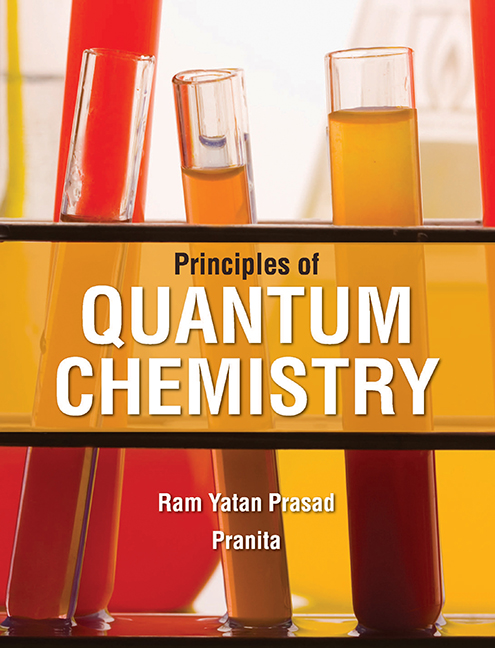Book contents
- Frontmatter
- Dedication
- Contents
- List of Figures
- List of Tables
- Foreword
- Preface
- 1 Quantum Theory
- 2 Wave–Particle Duality
- 3 Mathematical Techniques
- 4 Quantum Mechanical Operators
- 5 Postulates of Quantum Mechanics
- 6 The Schrödinger Equation
- 7 Playing with the Schrödinger Equation
- 8 Hydrogen Atom
- 9 Approximate Methods
- 10 Diatomic Molecules
- 11 Multi-electronic Systems
- 12 Polyatomic Molecules
- 13 Hückel Molecular Orbital Theory/Method
- 14 Density Functional Theory
- Glossary
- Appendix I
- Appendix II
- Appendix III
- Model Question Papers
- Index
3 - Mathematical Techniques
Published online by Cambridge University Press: 02 December 2022
- Frontmatter
- Dedication
- Contents
- List of Figures
- List of Tables
- Foreword
- Preface
- 1 Quantum Theory
- 2 Wave–Particle Duality
- 3 Mathematical Techniques
- 4 Quantum Mechanical Operators
- 5 Postulates of Quantum Mechanics
- 6 The Schrödinger Equation
- 7 Playing with the Schrödinger Equation
- 8 Hydrogen Atom
- 9 Approximate Methods
- 10 Diatomic Molecules
- 11 Multi-electronic Systems
- 12 Polyatomic Molecules
- 13 Hückel Molecular Orbital Theory/Method
- 14 Density Functional Theory
- Glossary
- Appendix I
- Appendix II
- Appendix III
- Model Question Papers
- Index
Summary
This Chapter is intended to provide the students of chemistry with the mathematics they need in the course of study of quantum chemistry or quantum mechanics. The students will face difficulties in understanding the theoretical portion of quantum mechanics without the knowledge of mathematics. This chapter will help in developing a strong mathematics background for those who will continue into the mathematics of advanced theoretical chemistry. It is to be noticed that the subject of differential equations, for example, is no longer a series of trick solutions of abstract but the solutions and general properties of the differential equations, the students will most frequently encounter in the description of our real chemical world. The other topics such as matrices, determinants, vectors, etc., are equally important in quantum mechanics.
Differential equations
An equation involving the dependent variable and independent variable and also the derivatives of the dependent variable is called a differential equation.
Ordinary differential equation
A differential equation comprising derivatives with respect to a single independent variable is known as an ordinary differential equation.
For example:
Equations (3.1), (3.2), (3.3) and (3.4) are the examples of ordinary differential equations.
Partial differential equation
A differential equation consisting of partial derivatives with respect to more than one independent variables is known as a partial differential equation.
Order and degree of a differential equation
Order
Order of a differential equation is defined as the order of the highest derivative in the differential equation.
Degree
It is defined as the degree of the highest derivative which occurs in it, after the differential equation has been made free from fractions and radicals as far as the derivative is concerned.
Linear and non-linear differential equation
A differential equation is called linear if (a) every dependent variable and every derivative involved occur in the first degree only and (b) no products of dependent variables and/or derivatives occur.
General solution, particular solution, and arbitrary constants
General solution:
A solution of a differential equation having independent arbitrary constant equal in number to the order of the differential equation is known as its general solution.
- Type
- Chapter
- Information
- Principles of Quantum Chemistry , pp. 56 - 105Publisher: Foundation BooksPrint publication year: 2014



